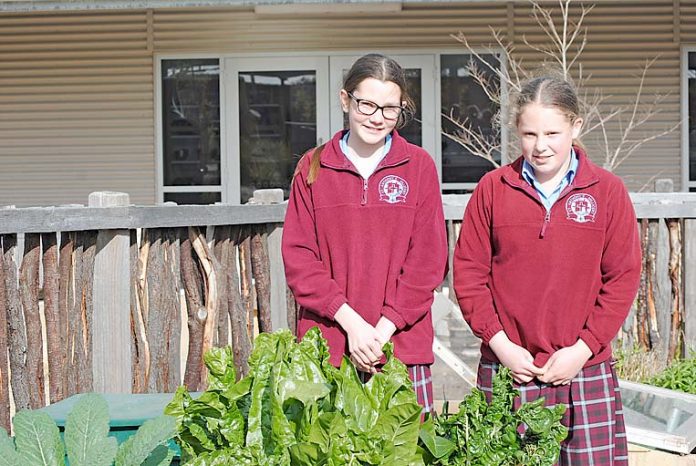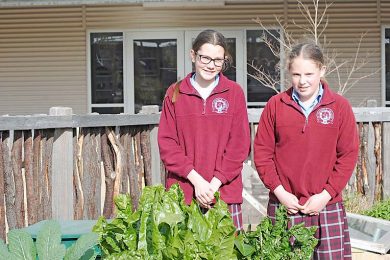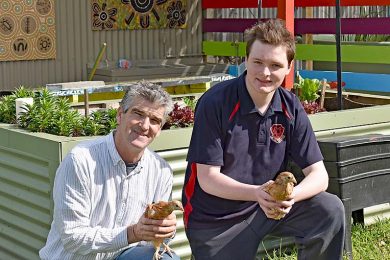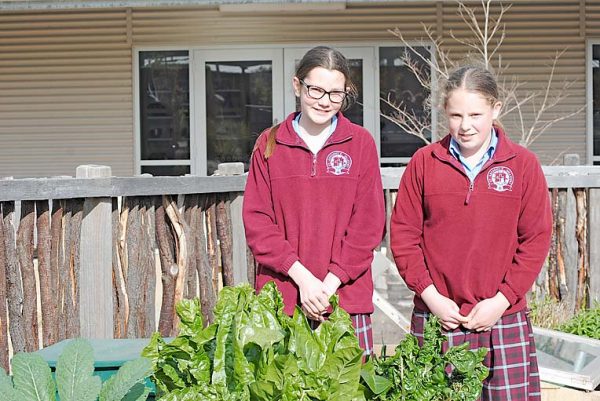
MILLICENT youths are learning the importance of agriculture and sustainability through comprehensive school programs.
A diverse learning program based around produce and livestock forms part of Millicent High School’s curriculum, while St Anthony’s Primary School Year 6-7 students focus on biodiversity and conservation through their Stephanie Alexander Kitchen Garden.
The educational initiatives will help bolster Millicent’s chances of becoming the state’s first Ag Town of the Year, with promotion of primary industries across the community a key part of the judging criteria.
“Agriculture is a compulsory course for Year 8 students,” Millicent High School agricultural teacher Scott McEachern said.
“After that it’s an elective, so in students’ first year of ag I try to teach them about the future of farming – genetically modified crops, farmers adjusting their practices due to climate change and how local businesses such as Mayura Station and Holla-Fresh out at Tantanoola value add to their enterprises.”
Mr McEachern’s classes incorporate caring for prime lambs, chickens, cows and pigs.
He said the pigs were popular with students as they are “a bit unique”.
Year 9 students are involved in the Cows Create Careers learning module led by Dairy Australia and educates students about the dairy industry.
Mr McEachern said the Year 12 cohort researched agronomy through cereal trials, while seasonal produce was also a focus through an organic vegetable garden program.
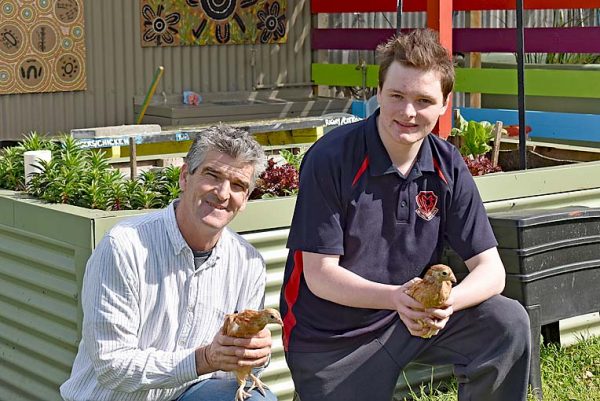
“I have been teaching agriculture for the past 18 years in two different states and I wanted to come back here and teach here because Millicent has an incredible number of agricultural enterprises,” Ms McEachern said.
“Millicent High School is one of the best I have come across for teaching agriculture and the teaching resources include a shearing shed and a cattle crush.”
At St Anthony’s Catholic Primary School, sustainability and science coordinator Julian Rebellato works with the students to create more opportunities to care for the environment.
In addition to having students create their own greenhouses through 3D modelling, Mr Rebellato and Principal Liza Couzens are working on reducing the school’s carbon footprint through a number of ecologically sustainable programs such as the Stephanie Alexander Kitchen Garden program.
“It’s essentially ‘seed to plate’,” Mr Rebellato said of the garden, where students grow a variety of winter and summer vegetables such as silver beet, beetroot, kale, broccoli, cabbage, herbs, snow peas and spring onions in winter and vegetables such as tomatoes and corn in the summer months.
“The students learn every aspect about gardening, including organic and seasonal gardening techniques. We keep the seeds so that we have plants for next year and the students use the vegetables in their Stephanie Alexander cooking classes.”
St Anthony’s also has a chicken shed where students use the eggs in the cooking program, while a butterfly garden is being developed so more insects can pollinate the school grounds.
Principal Liza Couzens welcomed the sustainability programs and other ecologically sustainable school initiatives such as harnessing wind and solar power.
“We’re teaching young people to care for the environment, by increasingly committing to strategies which care for our common home.”

